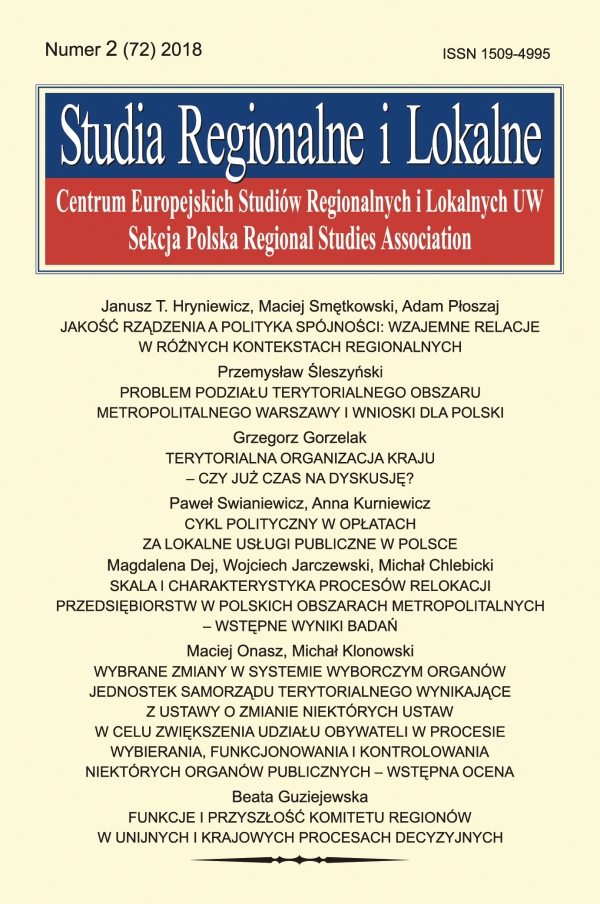Issue:
2(72)/2018
Maciej Onasz, Michał Klonowski
Selected changes of the local government electoral system introduced by the act amending certain acts in order to increase the participation of citizens in the process of selecting, functioning and controlling some public bodies – a preliminary analysis
DOI: 10.7366/1509499527206
Wybrane zmiany w systemie wyborczym organów jednostek samorządu terytorialnego wynikające z ustawy o zmianie niektórych ustaw w celu zwiększenia udziału obywateli w procesie wybierania, funkcjonowania i kontrolowania niektórych organów publicznych – wstępna ocena
Artykuł jest próbą analizy zmian wyborczych, jakie w ustroju samorządu terytorialnego wprowadziła ustawa z 11 stycznia 2018 r. Autorzy opracowania wskazali najważniejsze obszary, które uległy zmianie, patrząc na nie zarówno z punktu widzenia wymienionych w tytule ustawy obywateli, jak i z punktu widzenia poszczególnych instytucji. Do najważniejszych zmian autorzy zaliczyli m.in. te z zakresu biernego prawa wyborczego, formuły wyborczej i struktury okręgów. Wobec braku stosownej perspektywy czasowej autorzy ograniczyli się do analizy prawno-politologicznej, wskazując jedynie ewentualne konsekwencje omawianych zmian.
Selected changes of the local government electoral system introduced by the act amending certain acts in order to increase the participation of citizens in the process of selecting, functioning and controlling some public bodies – a preliminary analysis
The paper is an attempt to analyze the reform of the local government electoral system introduced by the Act of January 11, 2018. The authors of the study describe the most important changes from the point of view of the citizens mentioned in the title of the act as well as of the institutions involved. Among the most important changes the authors list those related to passive voting right, seat allocation method and the structure of constituencies. Because of the lack of an appropriate time perspective, the authors limit themselves to legal and political analysis, pointing only to their possible consequences.
Affiliation:
Maciej Onasz: Uniwersytet Łódzki, Wydział Studiów Międzynarodowych i Politologicznych, ul. Składowa 43, 90-127 Łódź;
maciej.onasz@gmail.com Michał Klonowski: Uniwersytet Łódzki, Wydział Studiów Międzynarodowych i Politologicznych, ul. Składowa 43, 90-127 Łódź;
miguel.klonowski@gmail.com 


